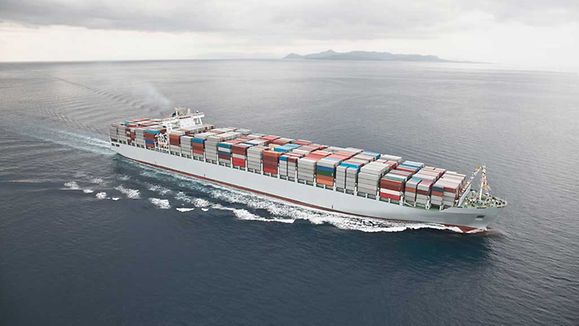Markets Germany Magazine 3/24 | Logistics
The Future of Logistics
Germany is a major logistics hub for Europe and a leader of innovation in the sector. Now it’s steering towards the next generation of autonomous vehicles. Fresh innovations are attracting investment from beyond Germany’s borders.
Nov 26, 2024
Not long ago, the prospect of driverless trucks motoring down Europe’s central highways might have seemed like a futuristic fantasy, and a dangerous one at that. But as the technology has advanced, skepticism and apprehension have given way to a new enthusiasm grounded in reality.
That was evident in the successful demonstration of the SAFE20 project last March, when the German company Dachser showed off its self-driving trucks in its logistics center in Langen, Germany.
The Bottom Line
As Europe’s biggest logistics hub, Germany is at the center of technological advances in the industry. Self-driving trucks are one of the key innovations that are driving new investment in this future-focused sector.
The project, which was funded by the German Ministry for Economic Affairs and Climate Action, clearly demonstrated that fully autonomous vehicles could operate in regular service at a minimum speed of 20 km/h in complicated situations with both human-driven vehicles and pedestrians—and it put any lingering doubts to rest. In the confines of the logistics center, the automated vehicles were also capable of maneuvering semi-trailers and interchangeable units.
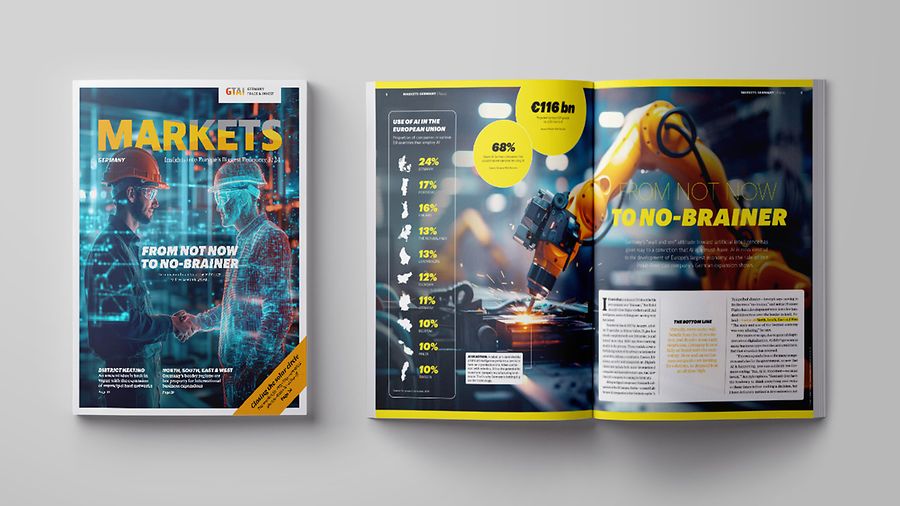
This article was published in issue 3-2024 of the Markets Germany Magazine. Read more articles of this issue here
SAFE20 was supported by the Fraunhofer Institute, whose senior engineer for Material Flow and Logistics, Michael Lücke, says the technology has come of age. ”When it comes to self-driving trucks, there’s no question that we’re technically 99% there,” he explains. “Making the vehicles drive—steer, brake, signal on their own—none of that is a problem.”
Self-driving vehicles are already common in warehouses and ports. The challenge is to use this machinery in public—in other words, places where there are also unpredictable pedestrians and human drivers. This too, would appear to be only a matter of time. Many regions in Germany are already installing new lanes on stretches of highway to accommodate self-driving trucks. “The infrastructure has been developed for some time,” says Lücke. “In our experience the problem is the human being, not the autonomous vehicle. Humans tend to be—how should I put it?—imprecise.”
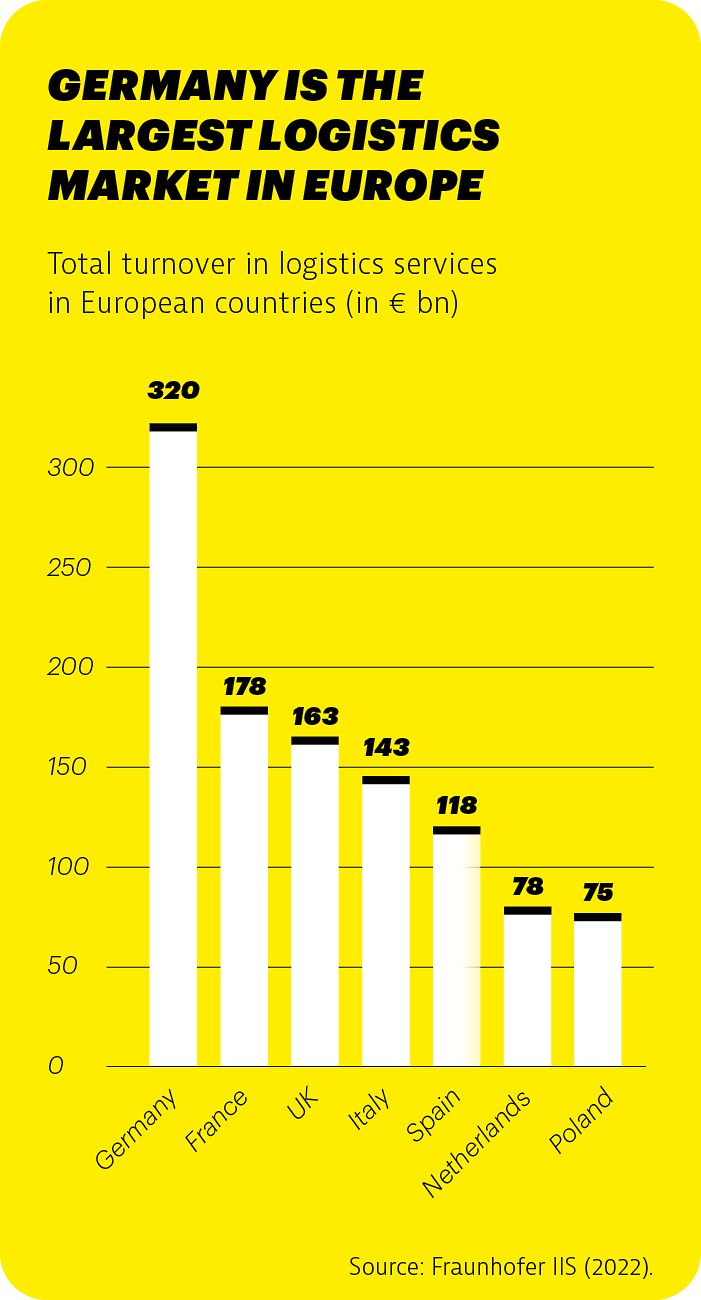
Europe’s logistics hub
David Chasdi, logistics expert at GTAI, predicts Germany will be at the center of advances in the sector, thanks to the country’s traditional strength in the field.
“Germany is Europe’s largest logistics market by far,” he points out. “Germany’s leading logistics market revenue ranks number one and is almost equal to France and the UK’s revenue—Europe’s numbers two and three—combined. It generates roughly 20 percent of Europe’s total logistics market share.” Moreover, as GTAI mobility expert Christoph Mester points out, Germany is already well-prepared for the next stage in logistics infrastructure. “Germany is definitely a pioneer when it comes to nationwide regulation and autonomous driving,” he says.
The government brought in autonomous driving legislation as early as 2017 and in 2022 amended liability insurance to allow Level 4 autonomous tech on German roads. Level 4 is the second-highest level of automation, which allows the vehicle to drive on its own with the driver present. “That makes Germany the first country globally to have a nationwide regulation for autonomous driving applications up to level four,” says Mester.
With a variety of technological institutions working on autonomous mobility, Germany’s R&D landscape is second to none. The Fraunhofer Institute, for instance, is developing software that checks and corrects machine learning on the road, as well as interconnected systems that link cars with infrastructure.
New car technology tends to be introduced first in the premium sector, where Germany has strong brands. The BMW Campus near Munich also has specialists working on autonomous driving software algorithms, and Mercedes was the first car manufacturer in the world to get permission to introduce a “traffic jam pilot” for Level-3 autonomous driving.
Strong R&D is one of the main reasons why there has been a cascade of interest from abroad. “It’s impossible to ignore that foreign automobile companies are streaming into Germany and that they want to build factories here,” says Lücke.
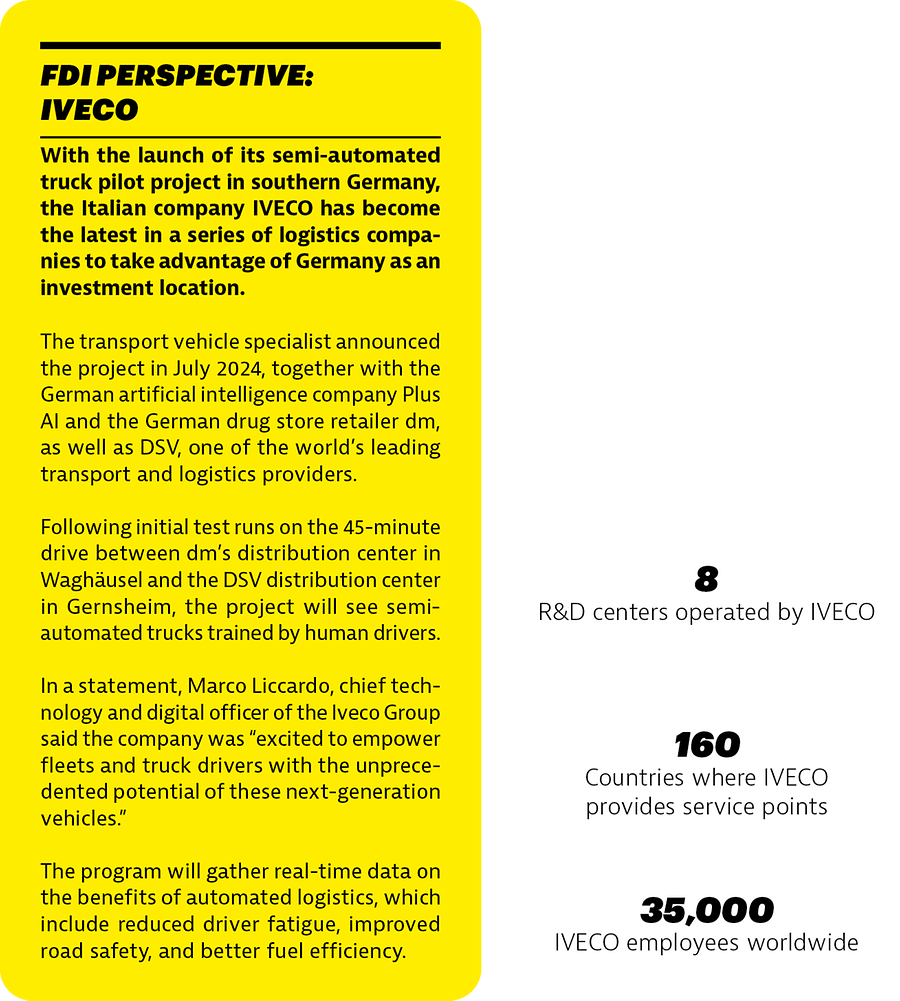
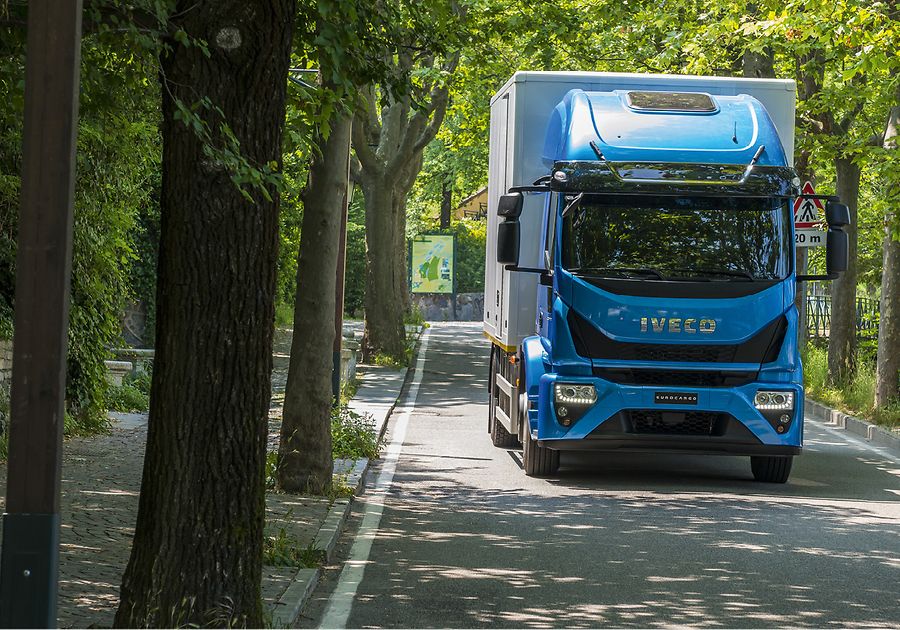
Government support
Germany’s political leaders have long recognized the importance of autonomous logistics. “There’s absolutely no question that politicians want to support and subsidize this sector,” says Lücke.
The German government has a range of initiatives to support R&D projects, especially for small and mid-sized companies (SMEs). One of these is KMU-innovativ, a program created by the German Ministry of Education and Research. The logistics arm of KMU-innovativ funds SMEs that are researching solutions for autonomous networked driving. The aim is to support firms developing product solutions that go beyond the current state of the art and to explore and fully exploit market opportunities.
“For example, a company can say: ‘We’ve got an idea for how to make the steering of autonomous systems easier.’ Then KMU-innovativ helps identify a research institute to help them and to get that subsidized,” says Lücke. “That of course reduces the risk significantly.” “There is a lot happening in Germany,” agrees GTAI’s Mester. “It’s a great investment opportunity for foreign investors that just want to push this.”

